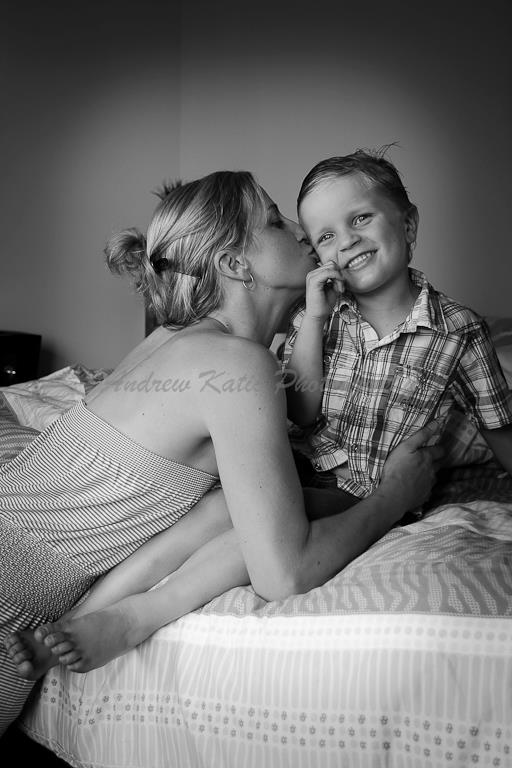 11 Sep 2015
11 Sep 2015
BY: Sara Trayman
Therapy Articles
Comments: No Comments
How to set ourselves free from our own minds
‘Emancipate yourselves from mental slavery, none but ourselves can free our minds’ Bob Marley
I find this quote really helpful to sum up how and why therapy can be useful for people to help them manage the emotional difficulties they have. It highlights that only we have the power to change how we think, feel and behave. We cannot change the world around us and we cannot make the people who we are close to change either, all we can change is ourselves.
One challenge we have as human beings is that we all want to feel like we are in control of our own lives and so when difficult feelings, events and situations arise we feel that we want to control them. However, there is only so much we can control and ultimately all we can control is ourselves, how we choose to think, behave and live.
There are times when we are slaves to our thoughts and perceptions and they become rigid and inflexible. This can be limiting as the world does not operate in the ‘black and white’ or ‘either/or’ that our minds prefer. This limit on our minds and the world does not afford us the flexibility which helps us to navigate life’s rollercoasters.
Figuring out how to think more flexibly and consider multiple perspectives allows us to free ourselves. Only we have the power to free ourselves-you cannot easily teach someone how to achieve this but sometimes in therapy people are able to figure this out for themselves. So try it, question and wonder about whether the way you are seeing things might be seen differently by other people who are kind to you and want the best for you. Be kind to yourself in the ways that they will be and set yourself free from thoughts which just hold you back and limit yourself.
 01 Feb 2014
01 Feb 2014
BY: Sara Trayman
Therapy Articles
Comments: No Comments
Anxiety-How your body sends you messages
Anxiety is such a debilitating experience-you can feel overwhelmed and consumed by it and it as though you are always going to feel this way. Anxiety takes on many different forms including panic attacks, obsessive thoughts, avoiding situations, having outbursts and feeling unable to cope with life. Feeling unable to breathe or to think clearly, our instinct is to do whatever we can to make it go away. So how can anxiety ever be of any use?
Anxiety could be seen as being a message that your body is sending you. This is a message we do not understand how to listen to perhaps because it brings with it paralysing feelings so that we struggle to think or process what is happening. Or it may be that we do not know what we are listening out for.
It can be easier to think about this using a physiological example. We often find it easier to relate to examples that we are used to dealing with such as the physical experience of pain. When we hurt our foot we will get messages of pain telling us that we have done some damage. If we simply take pain killers and continue to run on our foot, assuming that the pain has no function we will further damage ourselves. The pain is the message, from our body, that something needs our attention. Whether that be to seek medical attention or simply that we are over-doing it and need to rest, the pain is something which we need to give us awareness.
Anxiety can function in exactly the same way. Just as we would not want to simply medicate away our pain and ignore the message, the answer is not to simply medicate the anxiety away. When we experience anxiety it is important to take a moment to pay attention to ourselves and be with the anxiety rather than move away from it. Like a small child having a temper tantrum, the anxiety if ignored escalates until it receives some attention. It needs our preoccupation and to be heard. Is it that you are too stressed by something in your life? Do you need to make some changes to improve your ability to care for yourself? Are there things that you are worrying about that you haven’t expressed or acted upon? Is it the result of suppressing other difficult and unpalatable feelings?
It may be that talking these things through with a therapist will be of benefit or it may be that once you start listening to these messages it is something to either tackle on your own or with the help of your loved ones. Either way, try to give the anxiety some of your time and attention and maybe it can guide you towards what is not working so well and help you to either change things or accept the things you cannot change.
 14 Jan 2014
14 Jan 2014
BY: Sara Trayman
Therapy Articles
Comments: No Comments
Other people’s reactions to your cancer
Almost every client I see has experienced the ‘tilted head’ at one time or another. What is this shared experience? Whether it be the person closest to them or a colleague who just heard the news, a familiar feeling washes over you when that head tilts to one side, the eyes become kind and you know in no uncertain terms a whole lot of sympathy is coming your way.
This can be extremely unhelpful to deal with even though it comes with the best of intentions. The trouble is that people do not know what to say or do to convey their own feelings and responses to your illness. They want to show that they care and that they are concerned about what you are going through but often all you want to know is that they still see you as the same person. The tilted head leads to you having to soothe them and reassure them that you are in fact fine and coping well. This is a tough situation to negotiate as what is intended as a show of support ends up with the onus being on you to smooth it over.
We have all done it and even when we have had the experience of being the recipient we will probably do it again. But there are no words to convey the empathy we feel or indeed the helplessness of seeing someone we care about fight to keep their health.
So what can you do? Sometimes there is no right way or words that anyone can offer us. When this is the case, you have to handle other people in the way that feels best for you at that time. You might need to let the sympathy flow towards you or to let it just pass straight through or you may even be able to let someone know what you need. Often humour is a way to break the ice and ignoring unhelpful reactions can help at other times.
It may be trial and error until you decide what is right for you. Let in the good and let go of the bad. It is your journey and you will get through the best way you know how. Support from loved ones is vital so keep close those people who just ‘get it’ and do not be afraid to have space from these who do not.
 14 Dec 2013
14 Dec 2013
BY: Sara Trayman
Therapy Articles
Comments: No Comments
“I’m a parent, get me out of here”: Parenting Consultancy
Who might need parenting consultancy?
For some parents the journey to parenthood has not been a smooth one. Difficulties conceiving, during pregnancy and other events during this period such as family bereavement or significant changes can make this time particularly challenging. The demands of being a parent coupled with these stresses and many others can leave you feeling as though you have very little space to think.
When parents seek out parenting consultancy they are often feeling very stuck and like there is no way out. They need help to figure out what the difficulties are or how to help themselves. Parent consultancy is about you being the expert on your family lives, but like all experts, sometimes you need some support from someone else to help you get the best out of yourself. We all have moments where we feel overwhelmed and we cannot see the way forward and having someone understand your family values, hopes and story can offer you a place to work out the next step.
What is parenting consultancy?
Parenting consultancy is not therapy for you or your child. However, it is a place to think about relationships between you and your co-parents, and you and your child. Together with a therapist who has a background in working with parents and children you might consider some of the following things to help you to figure out the way forward:
• Your own experience of being parented
• Yourself as a child
• Experience/expectations/hopes of being parents
• The journey so far and how it has shaped you
• What you would like life to be as parents and as a family
• What you want your child to be-your best hopes for them and their future
• How do you set yourselves up to be the parents you want to be
Consultancy comes from the perspective that the child’s behaviours or difficulties are a communication from them that something is not working well in the family. Children (especially young children and babies) are often unable to articulate in words what it is that they are feeling. Parent consultancy is a space to have a foot in your child’s world and try to understand what they might be struggling with in a non-blaming way.
You’ll need to feel heard and understood and to be able to figure out what is working well and what your struggles are. Just having the space to talk things through outside of the chaos of family life can provide a peaceful reflection on what can often feel overwhelming and infuriating.
SOME HELPFUL QUESTIONS TO CONSIDER
• Asking yourself, if my child’s behaviour is a communication, what is he/she trying to say?
• What is going on for me at the moment that might be impacting on how I respond when things are difficult?
• What are the sources of support that I have and how can I utilise them more?
• What are my core values/beliefs as a parent and how do I work towards them being my main focus?
• How can I do more to take care of my own needs so that I can become more free to be available for my children’s needs?
• Is there anyone with whom I can talk through my concerns whom I trust and who will not judge me?
• What helps me relax/unwind after a difficult day?
• What are my best hopes for my child, myself and the future?
• What are my biggest concerns right now and what can I do about them?
• What would be one small change right now that would make a difference to me and my family?
Read more about my parent consultancy services:
http://69.89.27.213/~counseu6/parent-consultancy/
- 1
- 2
